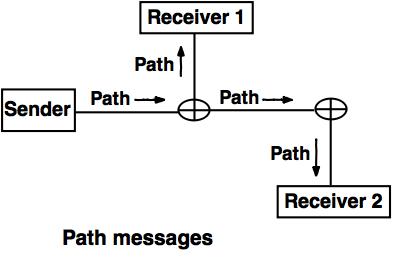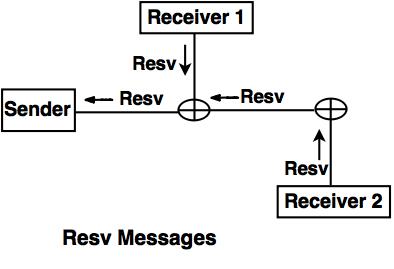Resource Reservation Protocol (RSVP)
- The RSVP is a signaling protocol, which helps IP to create a flow and to make resource reservation.
- It is an independent protocol and also can be used in other different model.
- RSVP helps to design multicasting (one to many or many to many distribution), where a data can be sent to group of destination computers simultaneously.
For example: The IP multicast is technique for one to many communication through an IP infrastructure in the network. - RSVP can be also used for unicasting (transmitting a data to all possible destination) to provide resource reservation for all types of traffic.
The two important types of RSVP messages are:
1. Path messages:- The receivers in a flow make the reservation in RSVP, but the receivers do not know the path traveled by the packets before the reservation. The path is required for reservation To solve this problem the RSVP uses the path messages.
- A path message travels from the sender and reaches to all receivers by multicasting and path message stores the necessary information for the receivers.
 2. Resv messages:
2. Resv messages:
After receiving path message, the receiver sends a Resv message. The Resv message travels to the sender and makes a resource reservation on the routers which supports for RSVP.


